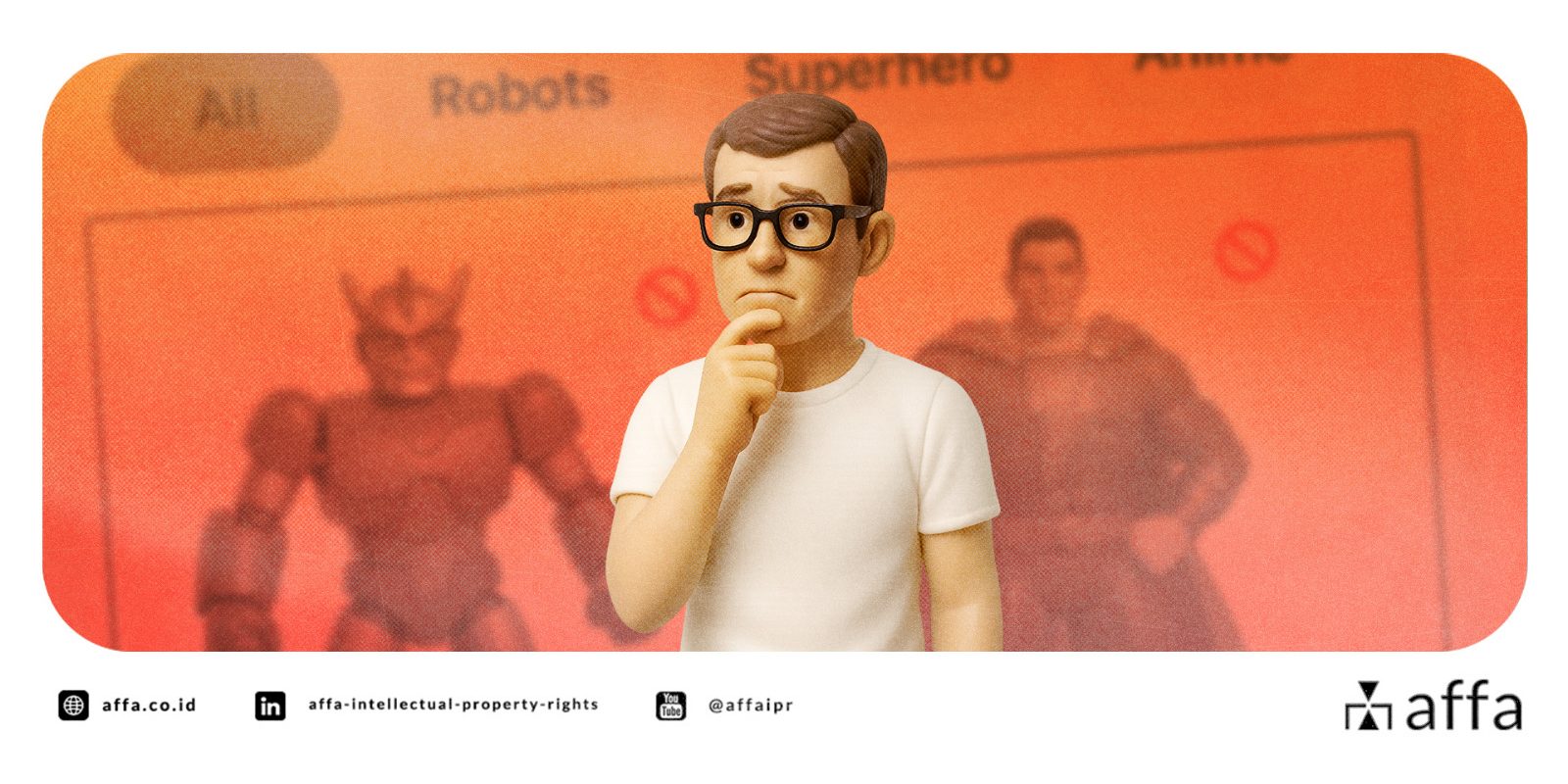Action figure communities in Indonesia have recently been shaken by a wave of takedowns on popular products across e-commerce platforms. Not only unofficial sellers like casual collectors were affected, but even official resellers who had followed the “white list” registration procedures were hit. The trigger? An official notice from the Trademark Holder (a licensed distributor of the Trademark Owner) prohibits various uses of the brand name and logo and the sale of unboxed items.
This incident raises an important question among many collectors and business owners: Can Intellectual Property (IP) Holders arbitrarily ban secondhand sales? Is this legal?
The Exclusive Rights of Trademark Holders
Legally, a Trademark Holder has the exclusive right to control how their mark/name/logo is used, especially in marketing and product distribution. However, it’s important to note:
- IP law does not automatically prohibit the resale of secondhand products, as long as the items are genuine and were lawfully acquired.
- Under a principle known as the “exhaustion doctrine”, the rights of a Trademark Holder are considered “exhausted” once the product is sold lawfully for the first time. This means the buyer may resell it.
- However, the Trademark Holder does retain the right to restrict the use of their brand in contexts such as store branding, product repackaging, or unauthorized logo usage that may mislead consumers or harm brand image.
In short, banning the resale of secondhand goods just because they are used can be legally disputed. But banning the unauthorized commercial use of logos, names, and other brand elements is legally valid.
Safe Tips for Selling Secondhand Items Without Violating IP Rights
To avoid infringing a brand’s rights when selling collectibles or secondhand products, here are some best practices:
- Avoid using the brand name or logo in your store title.
Use neutral descriptions like “blindbox collectible” or “random rare figure.” - Clarify that the product is from a personal collection and is pre-owned.
This can help show there’s no intention to violate distribution rights. - Do not modify or rebrand the product.
Repackaging or adding custom branding (like stickers) can be considered infringement. - Avoid implying that you’re an official distributor.
If you’re not part of the authorized distribution channel, avoid using terms like “official” or “authorized.” - Do not sell opened blindbox items if the Trademark Holder prohibits it.
If a product is meant to be a surprise item, unboxing and selling it by character name can be considered a violation of its commercial value.
But Why Can People Freely Sell Used iPhones?
This comparison has sparked debate. After all, people sell secondhand iPhones on online platforms all the time without issue. What’s the difference?
- Apple and other phone manufacturers do not prohibit the sale of secondhand devices as long as they are genuine and unmodified.
- iPhones are not designed as “surprise” collectibles like blindboxes, so there’s no concern about damaged exclusivity due to unboxing.
- Sellers of secondhand iPhones also do not claim to be official distributors and don’t use Apple’s logo for store branding.
In essence, the issue is not the fact that the item is secondhand, but the context of branding and marketing.
Selling secondhand goods is legally allowed, as long as the products are genuine and the seller does not mislead consumers by misusing brand elements. For collectors and small sellers, understanding the limits of IP law is key to keeping your listings safe from takedowns or legal claims.
Should you need expert advice on Trademark usage in online sales, contact us at [email protected].







